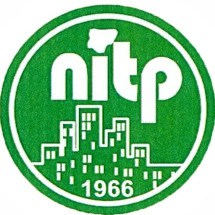The Imperative of Urban Planning in Imo State: A Call for Sustainable Human Settlements
The Nigerian Institute of Town Planners (NITP), Imo State Chapter, has issued a clarion call for responsible urban development within the state. Chairman Austin Ukanwa emphasized the critical need for adherence to established urban planning guidelines, particularly regarding construction in ecologically sensitive areas. He unequivocally stated that no certified town planner would sanction building on waterways or erosion-prone land, underscoring the existence of comprehensive layout, master, local, and regional plans designed to guide development and ensure environmental sustainability. Ukanwa urged citizens to comply with these guidelines to avoid conflicts with state enforcement agencies and contribute to the realization of well-planned urban and regional spaces. He stressed that the onus of responsibility lies with individuals to adhere to these plans, absolving town planners of any liability for unauthorized constructions.
Central to the NITP’s message is the vision of sustainable human settlements throughout Imo State’s communities, towns, and cities. This vision places human well-being at the forefront of developmental activities, aiming to create livable, healthy, efficient, and economically viable environments. Ukanwa articulated the core mission of town planning as prioritizing the needs of individuals within the urban landscape, ensuring that development enhances rather than detracts from the quality of life. This involves ethical, professional training and practices that are responsive to societal needs and dynamics. He highlighted the importance of viewing citizens as the ultimate beneficiaries of organized and functional cities, recognizing urban centers as hubs of human population and capital, often attracting individuals seeking economic opportunities and a better life.
Town planning, according to Ukanwa, is a predictive and scientific discipline that strategically allocates resources and facilities to optimize the functionality of urban areas. This profession plays a crucial role in mitigating the negative consequences of urbanization, such as overcrowding, traffic congestion, unemployment, slum development, water and sanitation issues, and urban crime. Effectively managing these challenges requires a collaborative effort between government bodies at various levels and other key stakeholders. Ukanwa emphasized the necessity of government endorsement, involvement, and buy-in to achieve the goal of sustainable human settlements.
Past President of the NITP, Steve Onu, echoed Ukanwa’s concerns, specifically addressing the proliferation of slums in Imo State. He defined slums as settlements lacking essential amenities such as roads, electricity, and water, highlighting the urgent need to address these substandard living conditions. Onu advocated for heightened public awareness and sensitization campaigns to discourage construction in hazardous areas like waterways and erosion-prone zones. He attributed the prevalence of illegal structures to a shortage of town planners within enforcement agencies, emphasizing the importance of qualified personnel to ensure compliance with building regulations.
The core message from both Ukanwa and Onu revolves around the critical role of urban planning in creating thriving and sustainable communities. Adherence to established plans, public awareness, and adequate enforcement are essential components of this vision. The NITP emphasizes the importance of collaborative action between citizens, government agencies, and planning professionals to achieve the shared goal of well-planned, functional, and resilient urban spaces in Imo State. This calls for a paradigm shift in how urban development is approached, emphasizing the long-term well-being of residents and the environment over short-term gains.
The emphasis on sustainability is paramount. Sustainable urban development requires a holistic approach, considering not only the physical infrastructure but also the social, economic, and environmental dimensions. This includes providing adequate housing, transportation, and public services, while also preserving natural resources and mitigating the impact of human activities on the environment. By prioritizing sustainable practices, Imo State can ensure a higher quality of life for its citizens and create a more resilient future for generations to come. The calls by Ukanwa and Onu underscore the urgent need for proactive measures to address the challenges of urbanization and create a more livable and sustainable Imo State.


